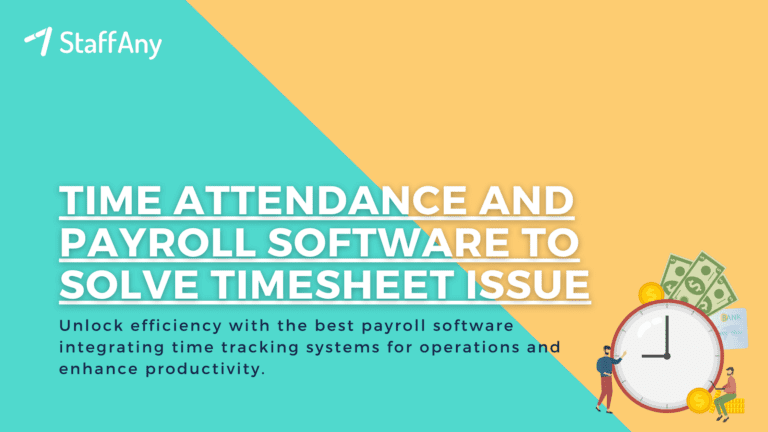As the job market evolves, part-time employment has become increasingly common in various industries. Part-time employees play a vital role in the workforce, often providing businesses with the flexibility needed to meet fluctuating demands. However, questions often arise concerning their rights, particularly in relation to overtime.
In this article, we will explore the regulations surrounding overtime for part-time employees in Malaysia, shedding light on their entitlements and the minimum wage they should receive. Let’s get started!
What is a Part-Time Employee?
A part-time employee, as defined by the Employment Act 1955 of Malaysia, refers to an individual who enters into an employment contract or a service-based contract with an employer for a specific time period.
Part-time employment is characterised by work hours that are more than 30 percent but do not exceed 70 percent of the regular work hours, which amounts to 48 hours per week in Malaysia.
In contrast, a full-time job is based on an employment contract where the employee is expected to work on all scheduled business days for fixed hours.
Full-time employees receive a fixed monthly salary for their work, and employers have legal obligations to provide various benefits, including health insurance, annual leaves, provident funds, and bonuses within an agreed fiscal period.
Read more: Can Employee Refuse to Work Overtime in Malaysia?
What is the Minimum Wage for Part-Time Workers in Malaysia?
As of the 1st of May 2022, Malaysia implemented a new monthly minimum wage of RM1,500. However, to ease the transition for smaller businesses, the effective date for employers with less than 5 employees was initially postponed until the 1st of January 2023.
Nevertheless, the Human Resources Minister, V. Sivakumar, has recently announced a further extension of this deadline due to the readiness concerns of micro-enterprises across the nation.
Based on the official statement from the Human Resources Ministry, companies or businesses with less than 5 employers will now be exempt from the new RM1,500 monthly minimum wage requirement until the 1st of July 2023.
This decision comes after considering feedback from various stakeholders and recognising the significant economic challenges faced by micro-enterprises in Malaysia throughout 2022 and beyond.
For organisations employing 5 or more employees, it is essential to note that the Minimum Wages Order 2022 is already in effect. This means that these employers are obligated to pay their employees a minimum monthly salary of RM1,500, as the order came into effect on the 1st of May, 2022.
Non-compliance with the minimum wage requirement can lead to penalties of up to RM10,000 per employee, as stipulated under Section 43 of the National Wages Consultative Council Act 2011.
As the new minimum wage deadline has been deferred for employers with less than 5 employees, they are currently bound by the previous minimum wage rates set in 2020. The previous rates stand at RM1,200 per month for employees in City Council or Municipal Council areas and RM1,100 for those in other areas.
However, it is important to emphasise that this is a temporary arrangement. Once the new deadline of 1st July 2023 has passed, companies of all sizes will be required to pay their employees a monthly wage of RM1,500.
What are Part-Time Employees Entitled to?
Part-time employees, despite working reduced hours, are entitled to several rights and benefits under Malaysian labour laws. These entitlements are in place to protect their welfare and ensure fair treatment in the workplace. Let’s explore some of the key entitlements that part-time employees have:
1. Right to Overtime Pay
Part-time employees, like their full-time counterparts, have the right to receive overtime pay if they work beyond the maximum hours specified in their employment contract. Overtime refers to the additional hours worked beyond their regular working hours.
The overtime rate for part-time employees is typically calculated on a pro-rata basis, ensuring fair compensation based on the number of hours worked in comparison to full-time employees.
2. Limitations on Working Hours
To safeguard the well-being of part-time employees, there are regulations in place that limit the number of hours they can be asked to work in a day or week. These limitations aim to prevent employee exhaustion and maintain a healthy work-life balance.
Additionally, part-time employees should be entitled to rest breaks and days off proportionate to the number of hours they work in a week.
3. Equal Treatment
Part-time employees have the right to be treated equally and fairly in the workplace, regardless of their reduced working hours. Employers are not allowed to discriminate against part-time employees or deny them certain benefits and opportunities available to full-time employees in similar roles.
Read more: Employee Assistance Programs: Definition and Benefit
4. Statutory Benefits
Part-time employees may also be entitled to certain statutory benefits, such as paid annual leave, public holidays, and sick leave. The number of days they receive for these benefits should be calculated in proportion to the hours they work compared to full-time employees.
5. Protection from Unfair Dismissal
Part-time employees are protected from unfair dismissal under Malaysian labour laws. Employers must have valid reasons and follow proper procedures when terminating the employment of a part-time worker.
6. Social Security Contributions
Part-time employees should also be covered by social security contributions, which may include benefits such as retirement savings and medical coverage. Employers are responsible for making these contributions on behalf of their part-time employees.
7. Training and Development Opportunities
Part-time employees should have access to training and development opportunities to enhance their skills and advance their careers within the organisation.
In conclusion, understanding the rights and entitlements of part-time employees is vital for creating a fair and supportive work environment in Malaysia. These dedicated workers, despite their reduced hours, play a crucial role in various industries and deserve to be compensated and treated fairly.
By adhering to labour laws and providing part-time employees with their rightful entitlements, employers can foster a positive and inclusive workplace that values its workforce.
As businesses navigate the complexities of overtime pay calculations, they can now turn to StaffAny’s overtime calculator in Malaysia. With this user-friendly tool, employers can efficiently calculate their staff’s overtime pay, ensuring accurate compensation and keeping employees satisfied.
Embrace StaffAny’s overtime calculator today to streamline your overtime pay process and make a positive impact on your business!











